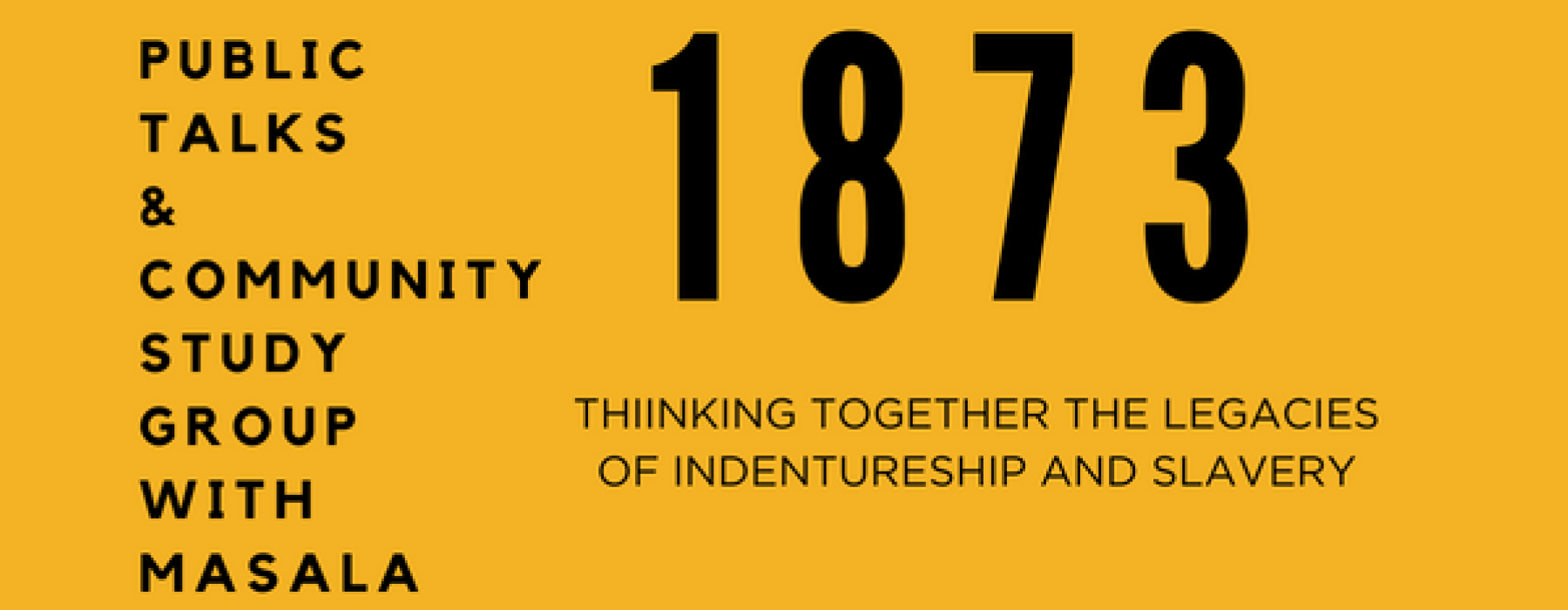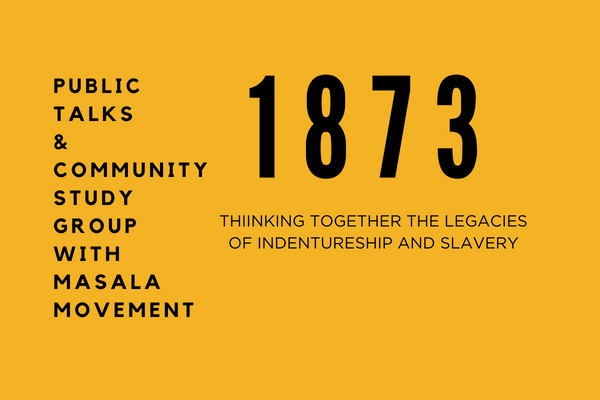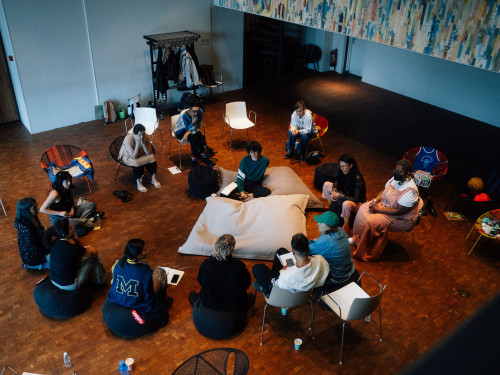
2023 marked the 150th anniversary of the abolition of slavery in the Netherlands, as well as the arrival of Indian indentured labourers in Suriname. Many organisations and cultural institutions commemorated the 150th anniversary of the abolition of slavery, as well as the 150th year anniversary of Indian indentured labourers arriving in Suriname. This project was inspired by this anniversary, but with the goal of nuanced, long-term research and community building through public talks and a community-based study group.
This project uses the anniversary of 150 years of Indian arrival into Suriname as a starting and departure point in order to see this historical process in connection with larger Indian labour diaspora narratives, the abolition of slavery in the Dutch empire, and the realities of lived migrant experiences in Europe today.
The core value and goal of this project is solidarity building. This is a crucial resource if we are to survive the multiple, interconnected and complex crises we currently face. The list is daunting; the rising cost of living, the normalization of extreme right political rhetoric and policies, Fortress Europe steadily and increasingly criminalizing refugees and migrants whilst simultaneously destabilizing other regions, escalating ecological and climate crises and a destruction of institutional public solidarity, such as the social housing system. Our collective capacity as a society to be in solidarity with each other is an essential component of any endeavor to build sustainable solutions to these societal problems.
The 1873 project offers three ways to do this. The first is by offering insight into the history and legacies of indentured labour, particularly that of the Indian indentured labour migrants who arrived in Suriname and their descendants in the Netherlands. There is not much public knowledge or education on how this is an important part of Dutch history and present. By addressing this knowledge gap, we hope to create a common ground with members of other communities.
Secondly, in the public panels and study group we explicitly seek out examples of inter-community solidarity and interconnectedness. Who did Hindostani Surinamese migrants live, organize and build new lives with when they arrived in the Netherlands in the 1970s and 1980s? Currently, what common ground is there between Hindostani Surinamese people in the Netherlands and recent South Asian migrants in the global conversation resisting Hindu nationalism? We discuss this in the study group, which is a community-based intellectual and social space that is co-conceived with Masala Movement, a creative community of Hindostanis and South Asians.
Finally, the 1873 project engages with solidarity by centering diasporic perspectives in our conversations. We start from the acknowledgement that as racialized people, we all have multiple ways of belonging to different communities, and an inherent unbelonging because of that multiplicity. We see this as a creative force and resource for solidarity building. Diasporic belonging and unbelonging offers a connection with the multiple ethnic, racial and cultural communities we are part of as migrants. In the recognition that we are not and never can be one thing, this project aims to resist the essentialized identities that box us in, and inevitably force us to renounce important parts of ourselves.



